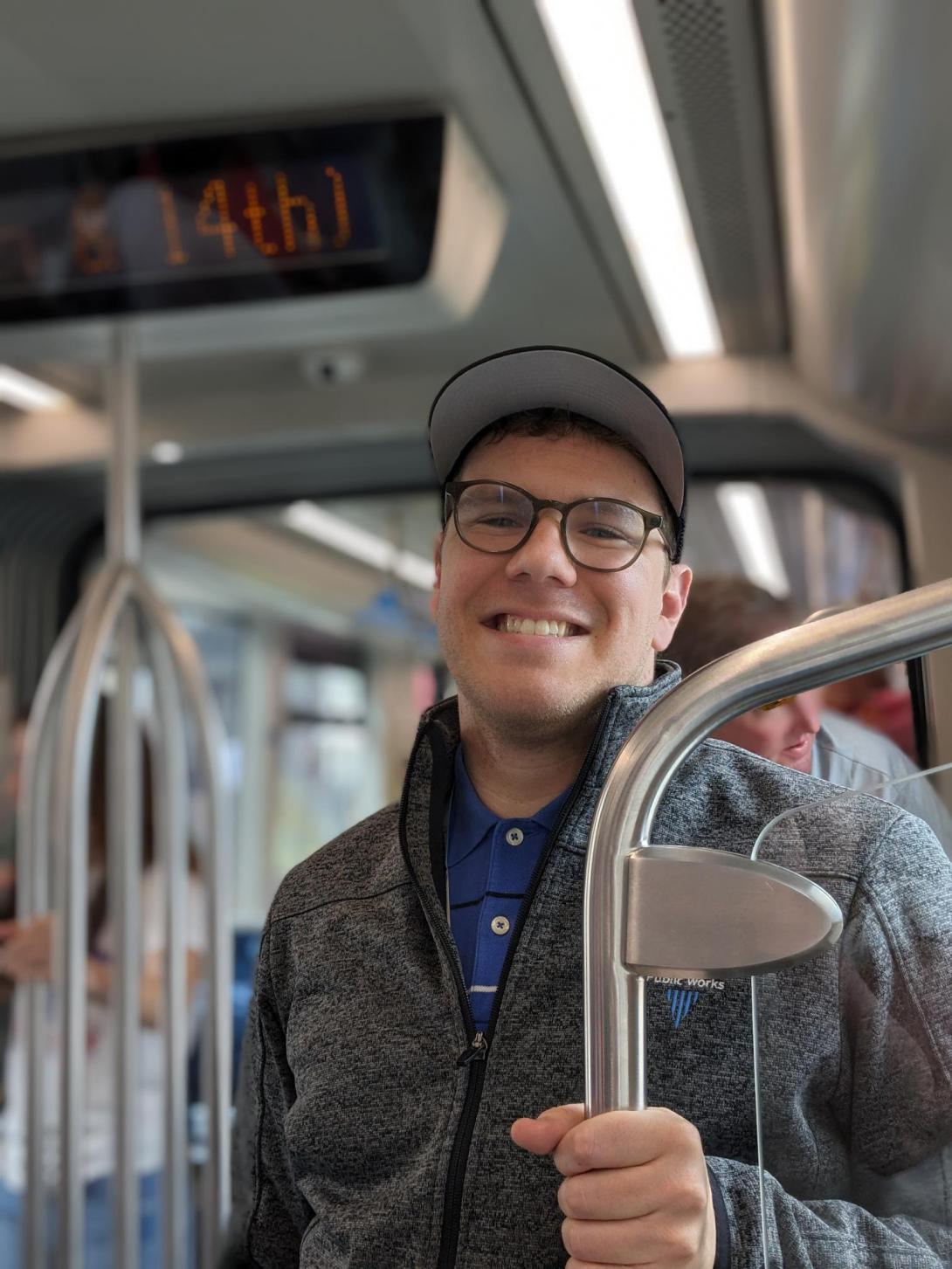
Long known for an underdeveloped public transit system, Michael Gawlick is among the Kansas City leaders trying to reverse that narrative.
Gawlick first came to the Truman School in the fall of 2017 as a Master’s of Public Affairs (MPA) student. Four semesters later, he graduated with the class of 2019. Immediately following his time at the university, Gawlick spent a year as a Cookingham-Noll Management Fellow with the City of Kansas City, Mo. Since then, Gawlick has remained with the city to work with the development of its streetcar.
As the streetcar program manager, Gawlick assists with the coordination of anything Kansas City streetcar related. While the city acts as the oversight arm of the system, most items related to the operation and expansion of the streetcar are carried out by external entities. Gawlick’s position assists with the overall coordination of those various moving pieces and parts.
The valuable lessons and relationships Gawlick built in the Truman School impact him to this day. His time spent working at the Institute of Public Policy (IPP) as part of his assistantship taught him many valuable statistical analysis skills. Since graduation, he has utilized those skills to effectively analyze financial data for local governments and improve government programs through effective evaluation.
During his time with IPP, Gawlick developed a meaningful relationship with the former director of the Missouri Teen Pregnancy Prevention (MOTPP) project, Kristi Ressel. “Kristi was one of my most impactful mentors,” Gawlick said. “We still talk to this day and she, in a lot of ways, is who I would consider my biggest mentor. She taught me a lot of how to work in and interact with local governments.”
Among the biggest takeaways from his time in education was the importance of robust internship experiences. Gawlick’s advice to current students is to experience a variety of different internship opportunities and learn as much about data analysis as possible.
“Lean into the numbers,” Gawlick said. “When you learn how to understand the numbers and how it applies to programs and decision making, that’s pretty black and white. What is less black and white is how to actually make the decisions and understand how it ties back to culture. Public affairs worked because it taught the culture and the data, which is so needed in today’s world.”
Between the combination of real-world experiences and in-class work, Gawlick believes the Truman School did an excellent job preparing him for future success.